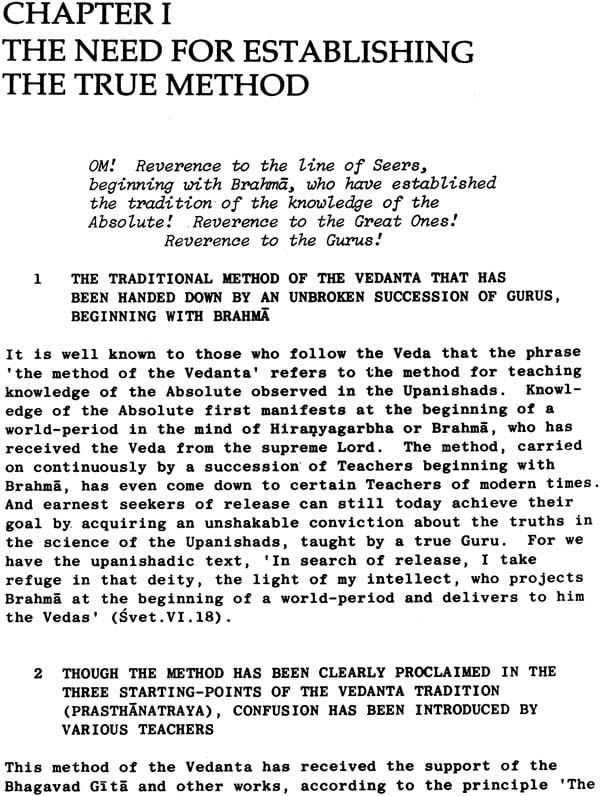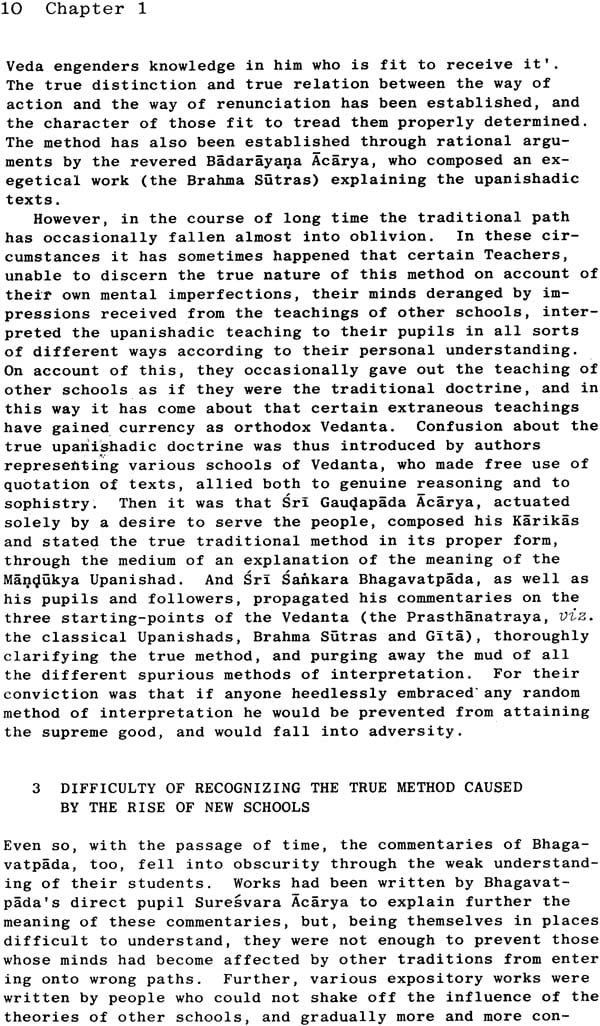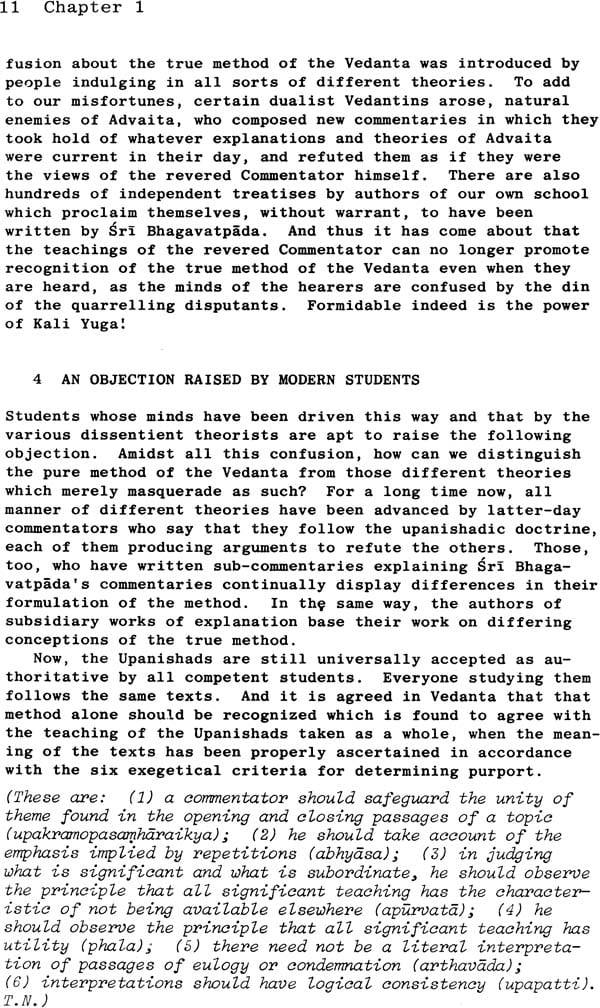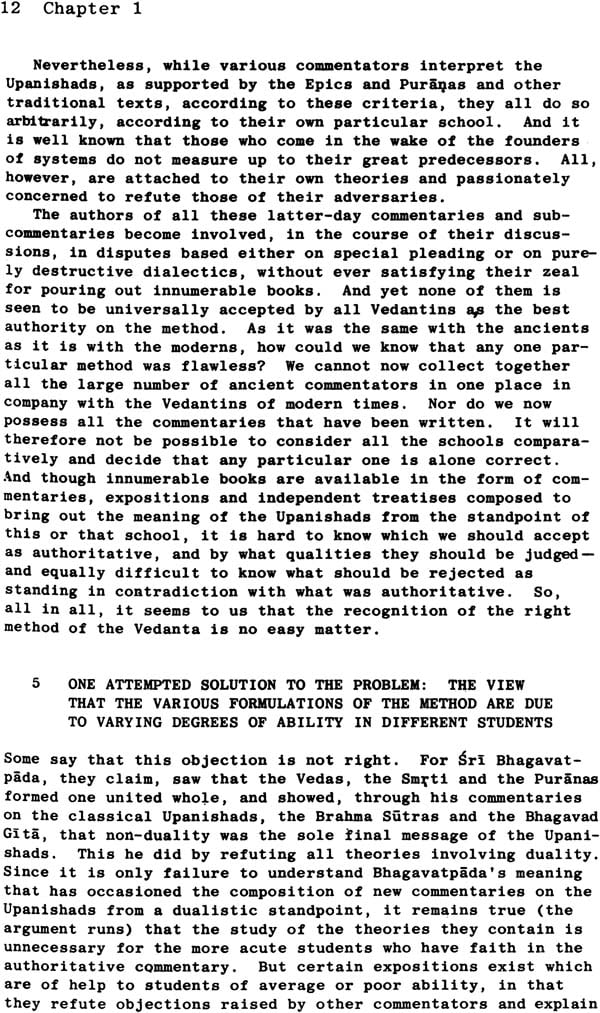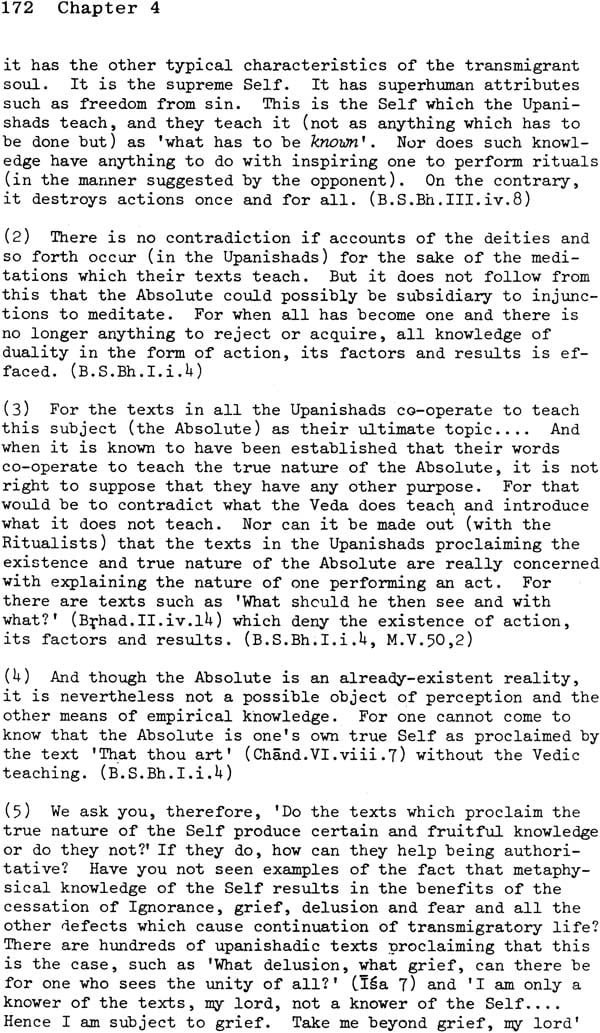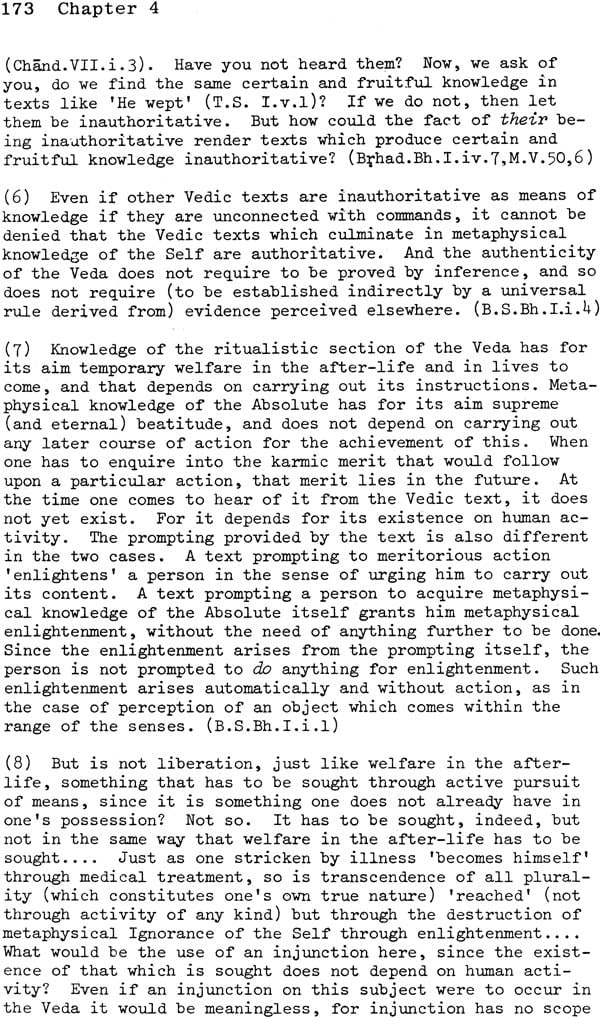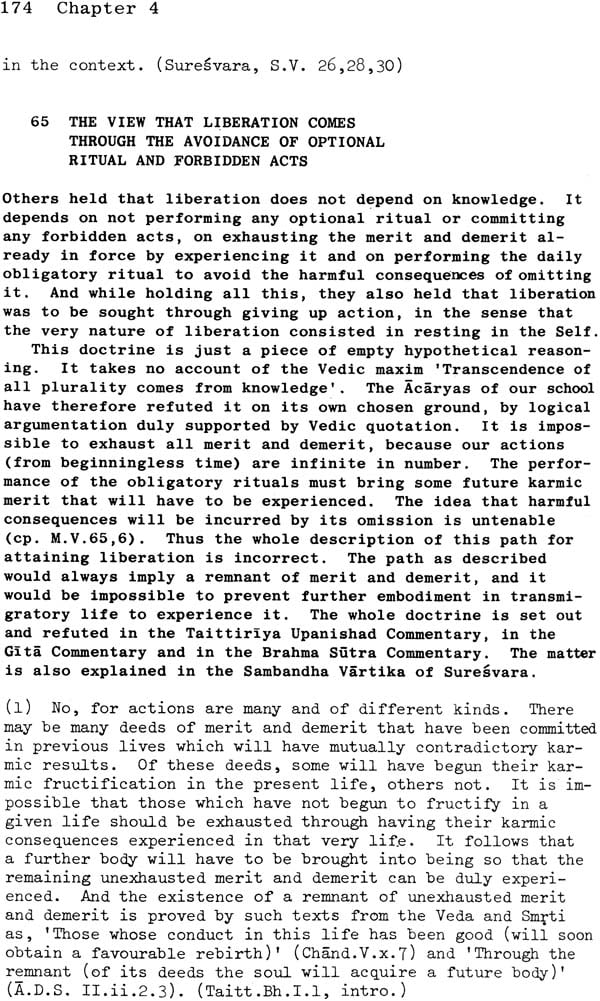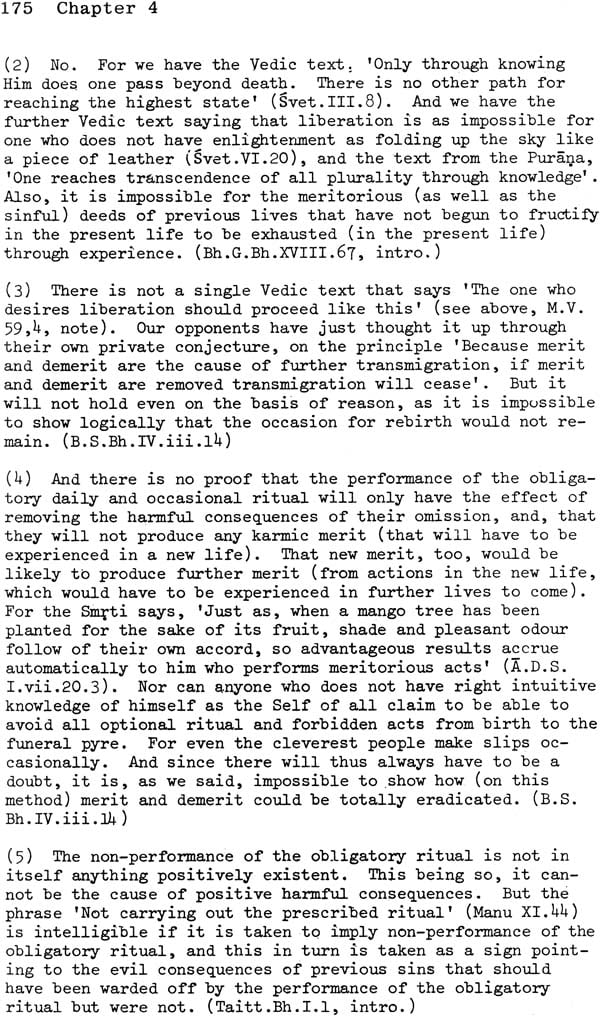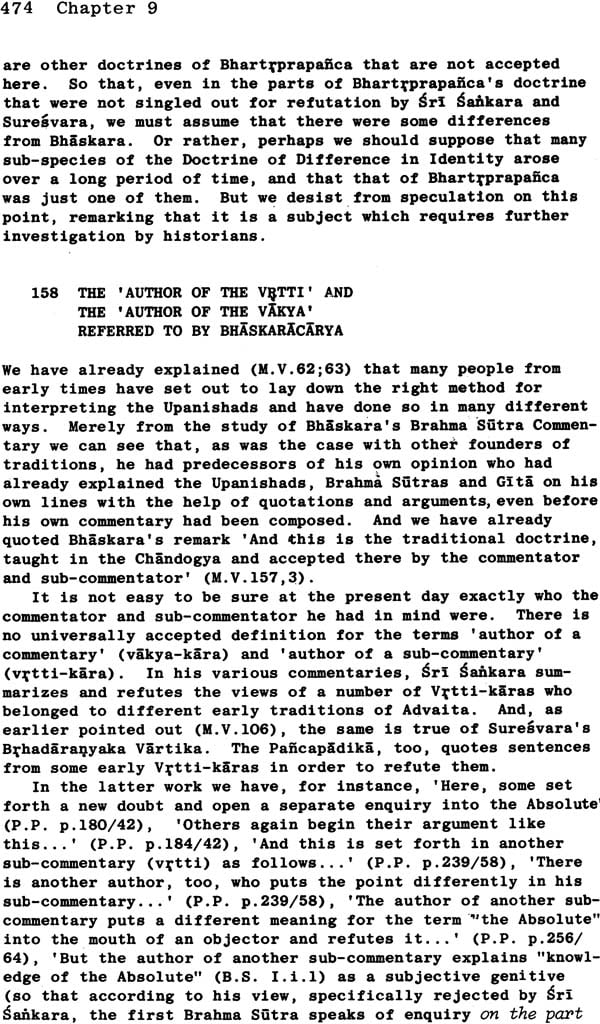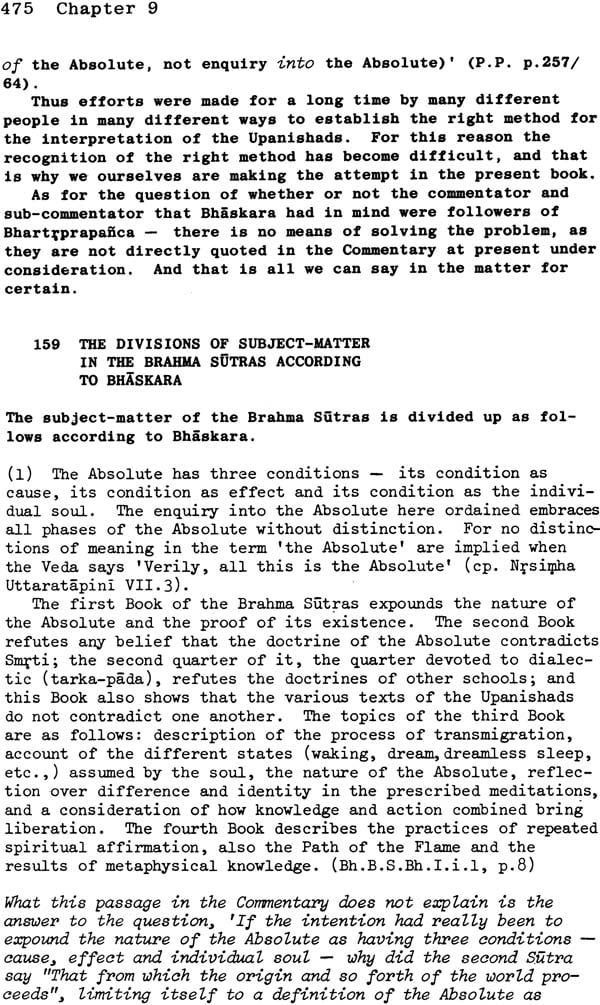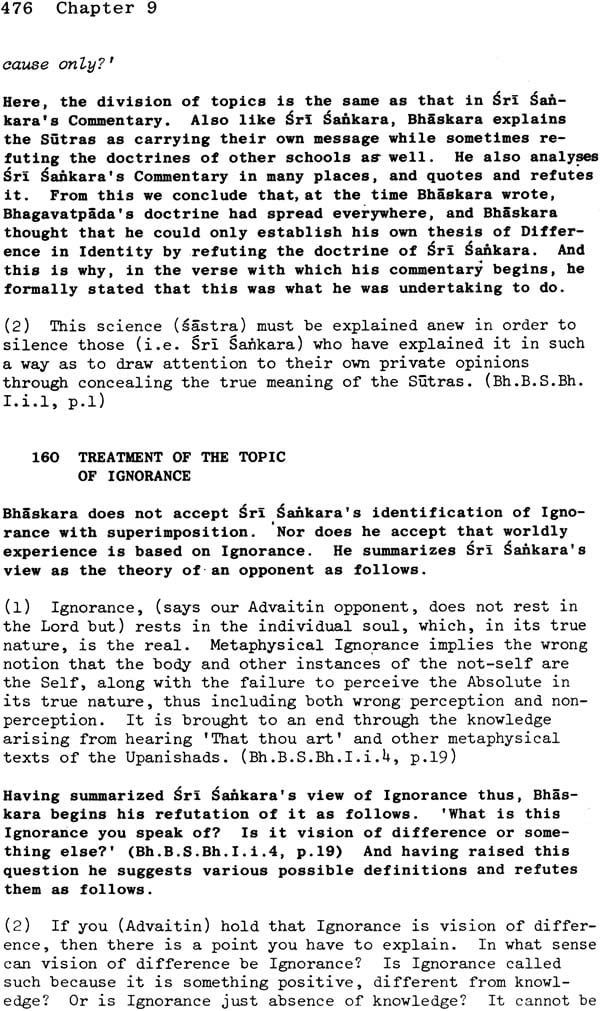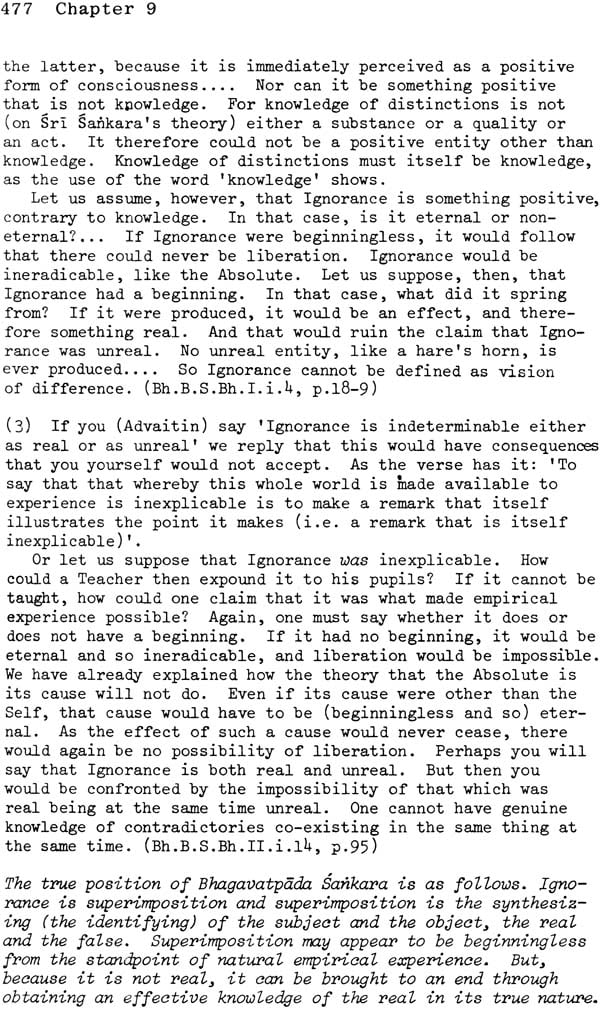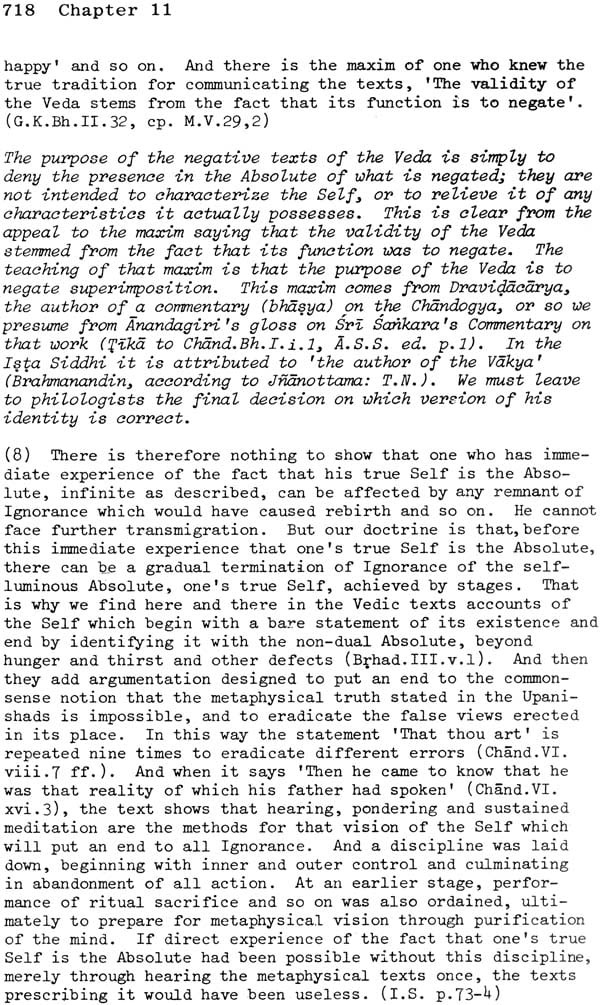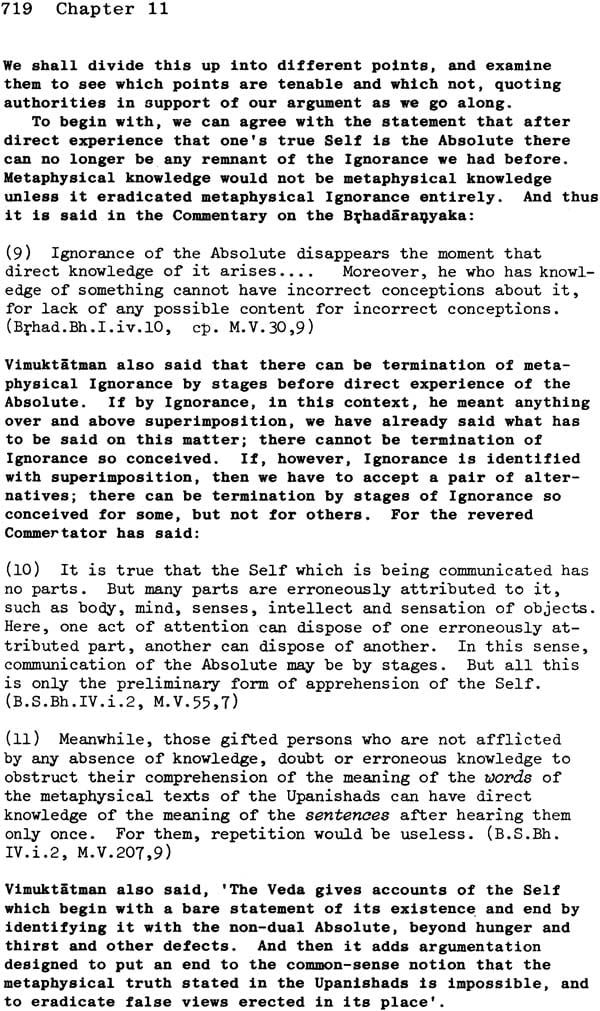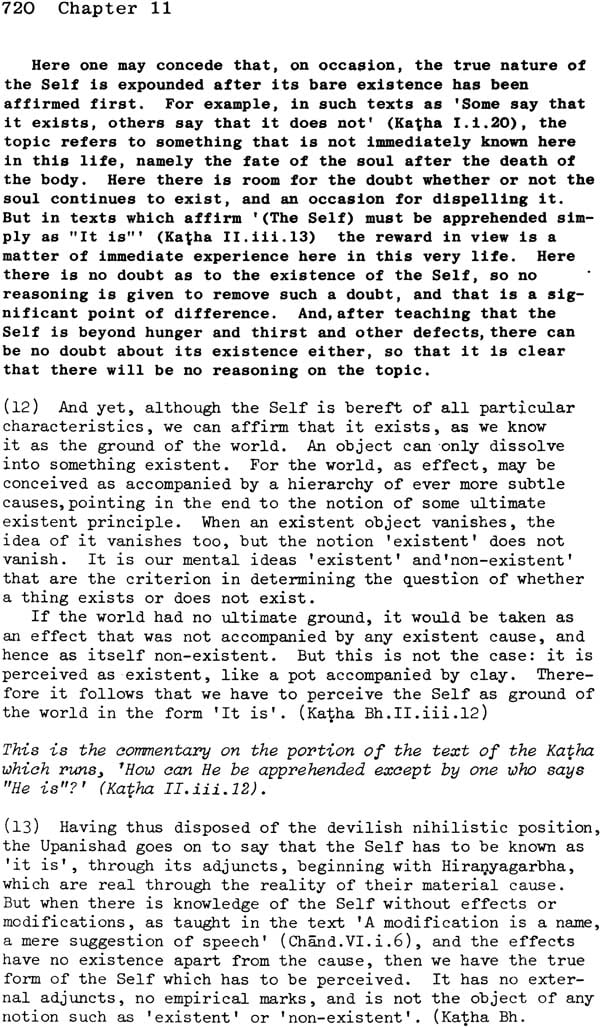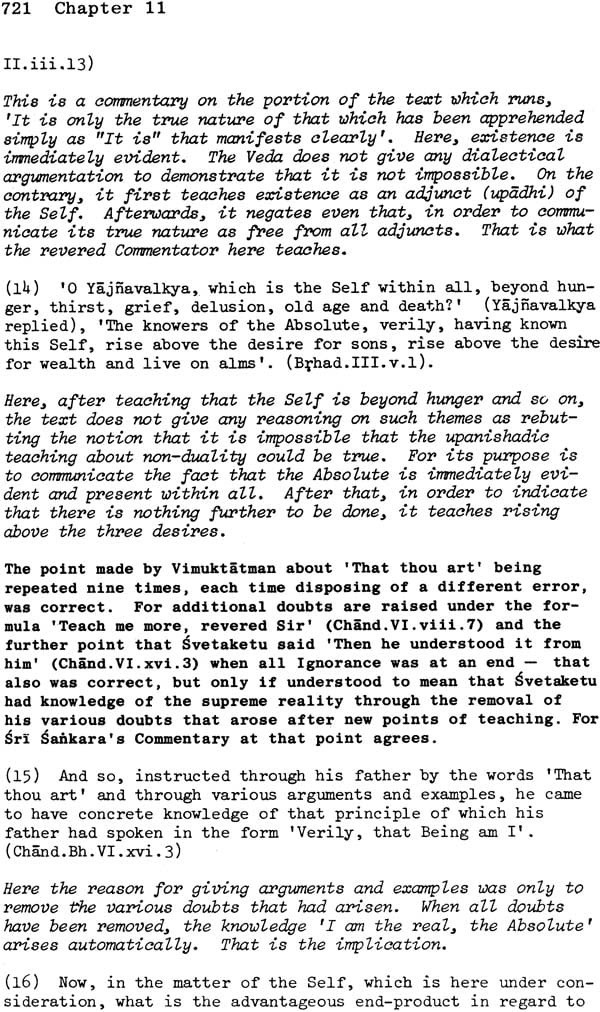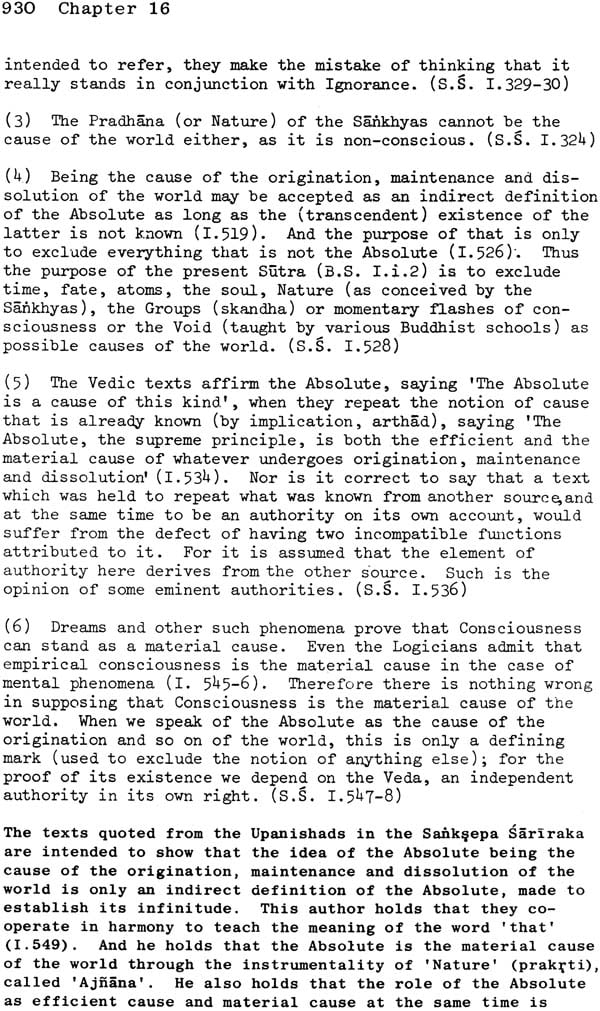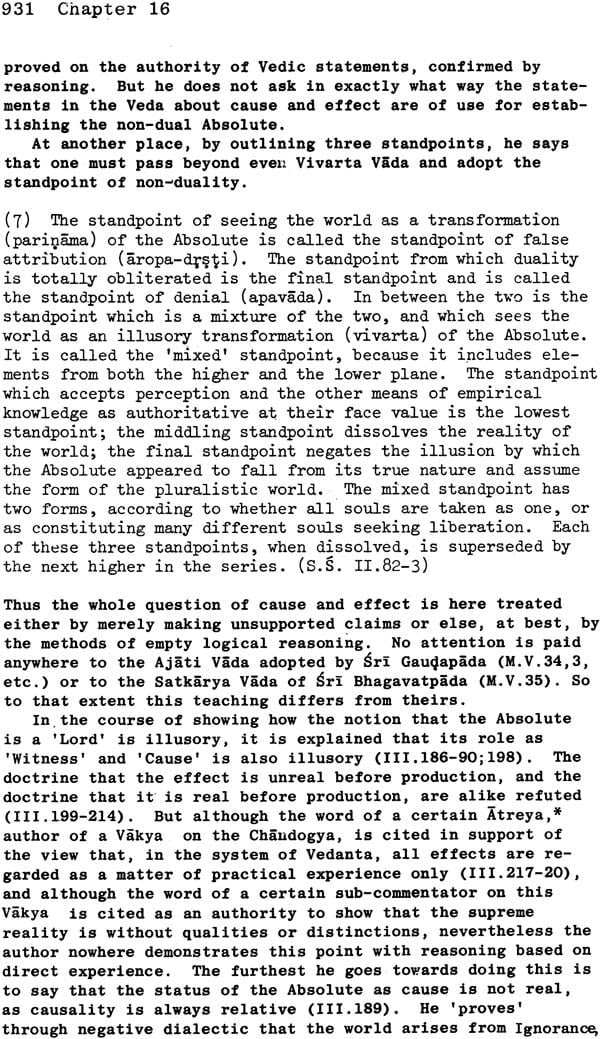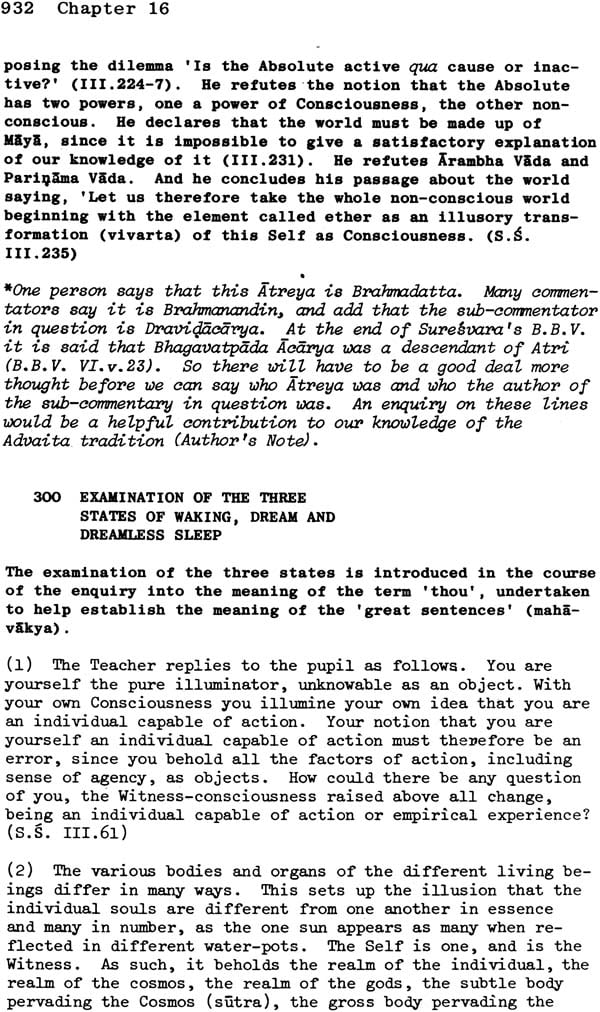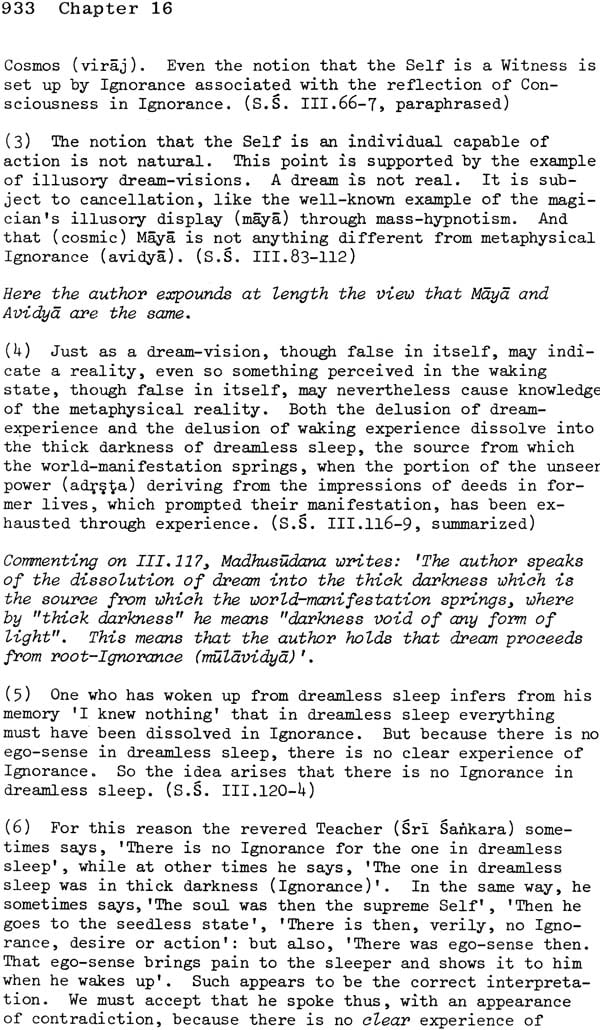
The Method of the Vedanta: A Critical Account of the Advaita Tradition
Book Specification
| Item Code: | IDF900 |
| Author: | Sri Swami Satchidanandendra |
| Publisher: | MOTILAL BANARSIDASS PUBLISHERS PVT. LTD. |
| Language: | English |
| Edition: | 1997 |
| ISBN: | 97881120813588 |
| Pages: | 975 |
| Cover: | Hardcover |
| Other Details | 9.7" X 6.3" |
| Weight | 1.50 kg |
Book Description
From the Jacket:
The Method of the Vedanta
Swami Satchidanandendra's major work represents the first large-scale critical history of Advaita Vedanta ever attempted. It seeks to establish a clear view of the traditional Advaita Vedanta based on the Upanishads, Brahma Sutras and Bhagavad Gita as systematized by Shankara and his close associates, unencumbered by the mass of conflicting theories developed by later writers of the school. Stripping back these layers of later interpretation, Swami Satchidanandendra calls the reader back to Shankara, who never forgot that the ultimate purpose of all study and reflection is the attainment of immediate experience of one's own true nature as the 'Self of All'.
The Author
The author was born in Karnatak in 1880, and assumed the name of Y. Subba Rau. He taught English in Bangalore as householder till retirement in 1935. Initiated for the study of Shankara by the Jagadguru of Shringeri at about the age of 20, he devoted his life as layman and monk to the study and propagation of Shankara's interpretation of the Upanishads, in its theoretical and practical aspects.
He founded the Adhyatma Prakasha Karyalaya for his purpose, and published altogether 183 works in Sanskrit, Kannada and English, besides innumerable articles. He always sought to penetrate behind the later commentators to Shankara's doctrine in its pure form, much in harmony with modern western scholarship.
Ordained a monk under the name Satchidanandendra Sarasvati in 1948, he poured forth works in old age with astonishing fertility. In 1964 he published at the age of 84 his greatest Sanskrit work, he Vedanta Prakriya Pratyabhijna, here presented in English form. He lived on to produce many other works before his death in 1975.
The Translator
Dr. A. J. Alston was inspired to take up the study of Sanskrit and Vedanta by the late Hari Prasad Shastri. He was fortunate to receive training from Radhakrishnan and T.R.V. Murti. After a lifetime's study, he considers The Method of the Vedanta to be the finest work on Shankara ever written.
Excerpts from Reviews:
The Work is undoubtedly of major importance for anybody who wishes to study the history and development of Advaitic thought and method of argumentation. The translation is very readable. Karel Werner, Journal of Royal Asiatic Society, No. 1, 1990
..This volume is a reliable and highly enlightened translation of the VEDANTA PRAKRIYA PRATYABHIJNA, an important study of the Vedanta ..Dr. Alston ..is faithful to the Sanskrit text. The translation is clear and convincing. We recommend this book to the serious students of Advaita Vedanta. E. R. Sreekrishna Sharma, Bulletin of the Adyar Library, Madras Vol. 53, 1989
..The translation speaks for the care and devotion which Alston has brought to bear on his undertaking .the work will be of interest to scholars in India and abroad .The author's translation and explanation of the sutras are quite readable. Prof. T. P. Ramachandran, The Mountain Path, May-June 1990
Foreword:
There is a saying of those that know the tradition: "That which cannot be expressed is expressed through false attribution and subsequent recantation.
Every argument has its origin in certain life-contexts, certain cultural situations. No argument starts in a vacuum because human beings are born in an already interpreted world. That world assumes a certain form of life, a form of life in which man is born and lives. Yet there is something amiss in every interpretation, some lack, some lapse, something missed and not gra
